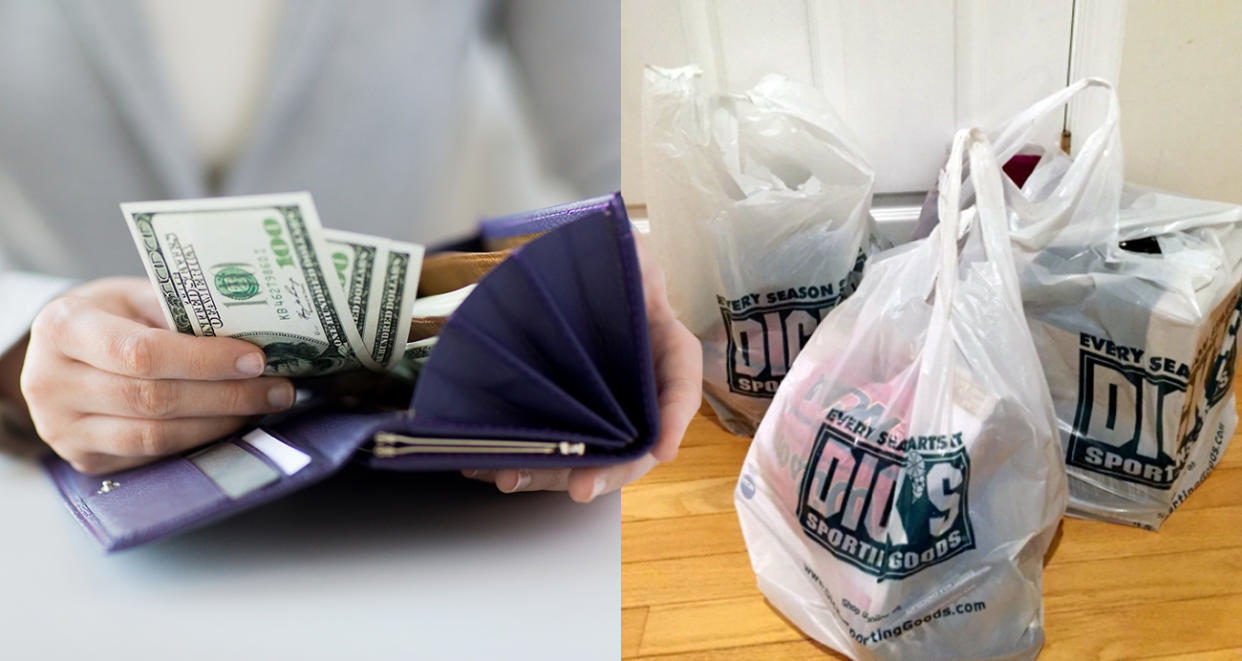How consumers are 'buycotting' stores like Dick's in the aftermath of Parkland shooting

In the more than two weeks since the Marjory Stoneman Douglas High School shooting in Parkland, Fla., it seems corporations are reconsidering how the public views their gun sale policies in large swaths.
In the countless consumer boycotts that have emerged in the wake of political debate over the past few years, it seems that it’s actually a “buycott” approach — rewarding companies with purchases rather than withholding one’s business — that’s got retail executives listening.
@DICKS , THANK YOU!!
Shopped at your store tonight! #ThankYouDicksSportingGoods #ParklandStrong @GiffordsCourage @MomsDemand @shannonrwatts pic.twitter.com/Rjo6OiKv2w— Caring Heart (@CaringHeartSoul) March 1, 2018
Dick’s Sporting Goods, Kroger, Walmart, and now L.L. Bean are among the companies raising the minimum age to purchase a gun and or limiting what weapons they stock. Hertz car rental, MetLife insurance, Delta Airlines, and others ended relationships with the National Rifle Association after the shooting as well. There’s even some business-to-business pleading happening, in this case clothing store Reformation examining its own supply chain ethics and asking FedEx to discontinue its relationship with the NRA, marking a notable shift in the discussion over CEO activism. Even Gucci, the Italian luxury house, joined the movement for gun control, pledging $500,000 to the March for Our Lives rally.
We've formally asked FedEx to discontinue the NRA discount program,and told them that their response will be taken into consideration when our contract is up for review. We hope FedEx will join other companies who realized customers won't stand for ties with the NRA.
— Reformation (@reformationx) March 1, 2018
Part of the credit might be given to people like Shannon Watts, the founder of Moms Demand Action. Watts created the consumer advocacy group after the Sandy Hook Elementary School shooting in 2012 and has wrangled support on social media using hashtags like #NoGunUntil21 to lobby corporations publicly to change their positions.
But you might also credit the emergence of what some are calling a “buycott,” a carrot-and-sticks approach to consumer lobbying.
“In greater numbers, companies and their leaders are speaking up on the hot-button and contentious issues of the day. Consumers are either boycotting or buying from companies that they personally agree with, depending on which side of the issue they are on,” says Leslie Gaines-Ross, chief reputation strategist at public relations firm Weber and Shandwick. “Social media has enabled consumers to vote with their wallets either for or against companies who take a stand. It is increasingly hard to remain on the sidelines anymore.”
According to Weber and Shandwick data, a 2018 survey found that 83 percent of consumer activists in the U.S. and U.K. agree it is more important than ever to show support for companies that do the right thing by buying from them, aka “buycotting.” There’s also a notable shift away from boycotting toward buycotting, the survey found, which will likely continue. Nearly “four in 10 buycotters (37 percent) expect to take more action over the next two years, a rate significantly higher than that of boycotters who expect to take more action (28 percent.)” Another striking figure: 83 percent of consumer activists agree that it is more important than ever to show support for companies by buying from them vs. participating in boycotts (59 percent).
That’s a marked shift from even a year ago, when Shannon Coulter led the #GrabYourWallet campaign, which urged shoppers to boycott more than 50 retailers that carried Ivanka Trump products. And when conservative consumers boycott companies — as they did with Patagonia for its stand against President Trump’s Bear Ears announcement — the data is mixed on whether the financial protest will pay off.
As Gaines-Ross has pointed out in previous research, there’s a domino effect that occurs in all of this, making it easier for retailers to follow suit when one is the first to take a position on an issue.
“This might have been the straw that broke the camel’s back, when once again we’re hearing lawmakers give thoughts and prayers without the promise of action,” Watts says. “The backlash was swift and severe and people were angry. So, if we can’t get them to act, there are other levers we can pull. This is one.”
Read more from Yahoo Lifestyle:
Follow us on Instagram, Facebook, and Twitter for nonstop inspiration delivered fresh to your feed, every day.
